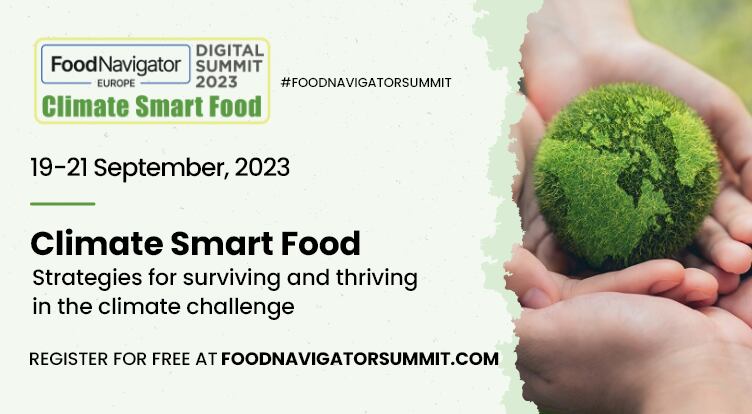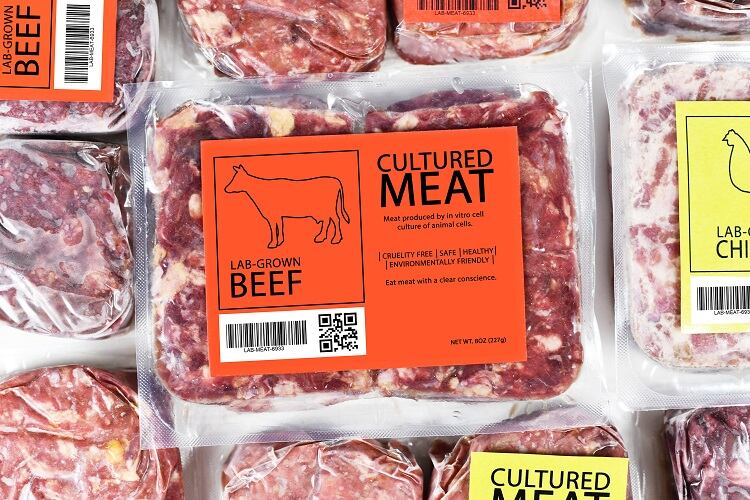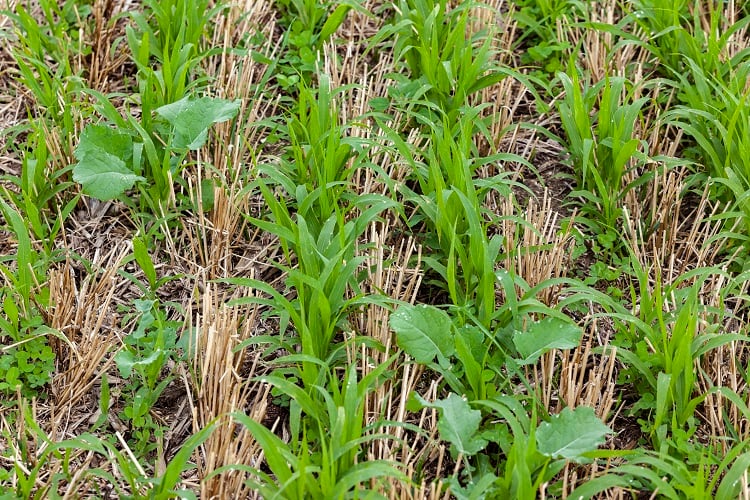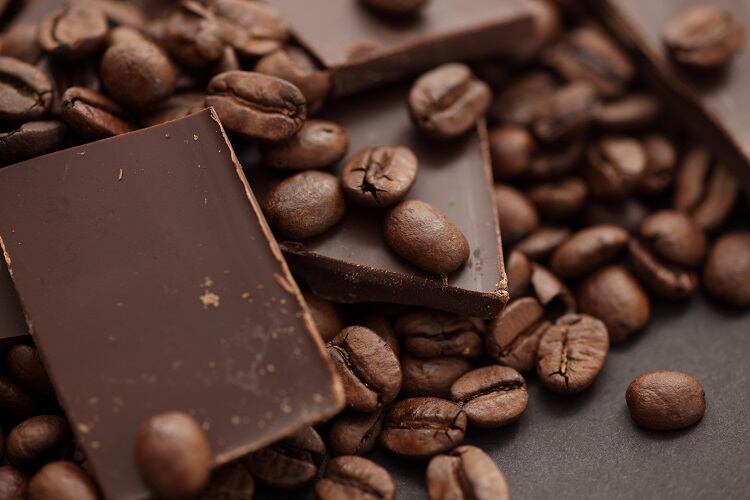Alternative proteins, whether sourced from plants, yeast, fungi, or cultured animal cells, are predicted take a greater share of the market in the coming years. But can they truly compete with their predecessors on nutrition, functionality, and accessibility?
This will be discussed and more at Climate Smart Food 2023, our three-day digital event spanning 19-21 September, where we’ll be asking how the food industry can help drive a transition towards sustainable food sourcing, production, and consumption. Registrations for the free-to-attend digital summit are now open.
Each day the session will run from 2pm CET to 5pm CET and will include interactive presentations, panel discussions, audience Q&As, fireside chats and start-up pitches.
21 September: Spotlight on alternative protein
Fireside chat
The magic of mycoprotein
Mycoprotein uses 90% less land and water and produces 98% less carbon emissions than equivalent beef products, according to analysis by the Carbon Trust. Marlow Foods boasts a long and successful heritage having produced mycoprotein for almost 40 years. The core ingredient in over 100 Quorn branded products, it is also enjoying success with QSR and foodservice partners including KFC across Europe, Greggs in the UK and Quick restaurants in Belgium.
We speak to Marlow Foods/Quorn to discuss more about the role of mycoprotein in sustainable diets.
Speaker: Stephenie Jochems, Managing Director, Marlow Ingredients
Video
Down on the cultured meat farm
The FoodNavigator team visits a UK-based cultivated meat company, Ivy Farm Technologies, to learn how cell-based manufacturing offers a more environmentally way to satisfy the world’s appetite for meat. We’ll take a look first hand at the stages involved in making what many consider a marvel of science and hear from CEO Richard Dillon why regulations urgently need to be overhauled to allow this industry to flourish.
Speaker: Richard Dillon, CEO, Ivy Farm Technologies
Presentation
Novel Foods: The regulatory landscape
Cultivated meat and animal-free dairy products are on the menu in other jurisdictions, but not here in the EU. What’s the hold up? Regulatory expert Katia Merten-Lenz sheds light on the intricacies of novel foods, and what EFSA’s approval process means for next-gen food on home soil.
Speaker: Katia Merten-Lentz, Lawyer, Food Law Science & Partners
Presentation
Are consumers ready for cultivated meat and precision fermentation dairy?
Consumer acceptance of novel proteins is key to their success. With slaughter-free meat and animal-free dairy yet to enter the EU market, a growing amount of research is investigating consumer attitudes to these next-gen proteins. Are Europeans hungry for cultivated meat and precision fermentation dairy? Tune in for the latest findings.
Speaker: Chris Bryant, PhD, Director, Bryant Research
Panel
Pioneering the protein transition for the future
Swapping out conventional proteins for climate friendlier alternatives has the potential to lower a brand’s carbon footprint significantly. How are innovators rethinking ingredient production for the masses? Can they truly compete with their predecessors on nutrition, functionality, and accessibility?
Speakers:
- Gregor Tegl, co-founder and CEO, Arkeon
- Rodrigo Godoi, VP Portfolio Management, Tetra Pak
- Hans-Georg Hollerer, Vice President Product & Marketing, Bluu Seafood
- Jaume Cirera Riu, Alternative Proteins Market Manager for Europe & Africa, Griffith Foods
- Romain Chayot, Managing Director, Standing Ovation
Climate Smart Food will run from 2pm CET to 5pm CET from 19-21 September as we ask how the food industry can help drive a transition towards sustainable food sourcing, production, and consumption.
19 September: Climate Smart Sourcing
Ingredients are a major contributor to FMCGs’ carbon footprints, making sourcing practices crucial to meeting carbon reduction deadlines. But cultivation is not the only consideration: global supply chains are increasingly plagued by disruption and have long been linked to human rights violations. How can sustainability be embedded into global supply chains?
On Day 1 of Climate Smart Food, we’ll be asking how best to mitigate against supply chain disruptions linked to droughts, floods or war; what sustainability legislation means for food majors; and whether regenerative agriculture can truly save the day.
20 September: Climate Smart Production
Feeding growing populations within planetary boundaries means producing more, with less. How can food and beverage makers increase output with fewer natural resources? From making the switch to ‘green’ energy to implementing water saving strategies and rethinking packaging design, we analyse the initiatives decarbonising production.
On Day 2 of Climate Smart Food, we’ll be asking how food majors can decarbonise their direct emissions; where water inefficiencies are most prevalent and how reliance can be reduced; what the future holds for plastic-free packaging; and whether we should increase our focus on the blue economy for sustainable nutrition.
21 September: Climate Smart Consumption
Shoppers often say they want ‘greener’ food and drink, but don’t always act with sustainability front-of-mind. Addressing barriers to climate smart consumption will be key to achieving food system transformation. Consumer demand is also a crucial piece of the food tech puzzle, with pioneers banking on us innovating our way out of the climate crisis. Are Europeans hungry for lab-grown food?
On Day 3 of Climate Smart Food, we’ll be asking what impact brands have on discouraging food waste in the home; how sustainability credentials can best stand out on the shelf; whether European consumers are ready for cultivated meat and precision fermentation dairy; and what the future holds for alternative protein.
Join the conversation live between 19-21 September by registering for free here.






